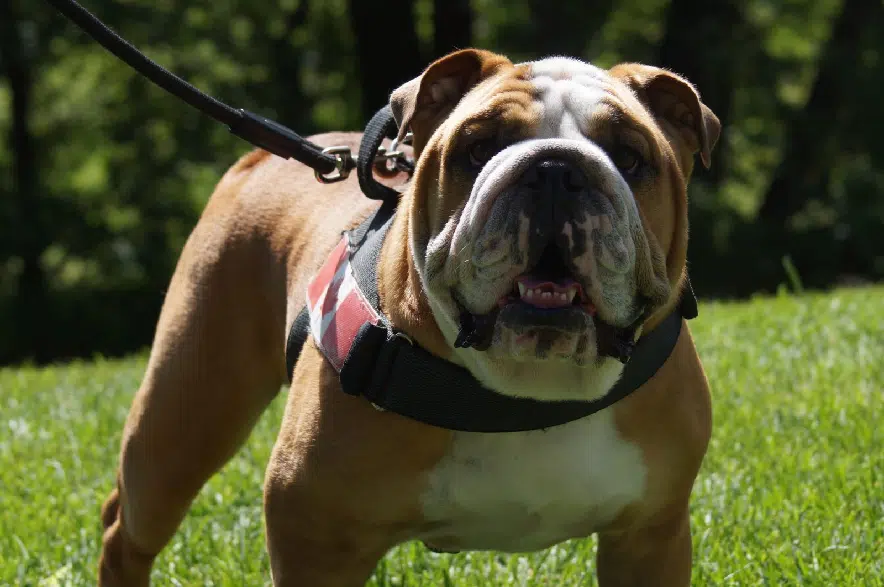Much of Saskatchewan is still under special air quality alerts as wildfire smoke drifts into the province, and that can make life challenging for pets as well as people.
Cathy Dick, a clinical instructor at the University of Saskatchewan’s Western College of Veterinary Medicine, said taking pets outside isn’t safe when air quality alerts are in place.
Because dogs can’t put on masks to limit their exposure to the chemicals in the smoke, Dick doesn’t recommend taking dogs outside at all on very smoky days.
“If it’s not good for humans, it’s not going to be good for your cat (and) it’s not going to be good for your dog,” Dick explained.
She said inhaling toxins can irritate the lungs and inflame the airways, which could lead to coughing or respiratory distress.
Karen Sheehan, also a clinical instructor with the Western College of Veterinary Medicine, said dogs’ eyes can become irritated and turn red when they’re exposed to smoke.
“If they’re rubbing their eyes or their eyes are tearing, they can create what’s called an ulcer or scratch on their eye,” Sheehan said.
Dick said pet owners should have their dogs assessed if they’ve been exposed to these conditions and start coughing, squinting, developing an eye discharge or having trouble breathing.
“An occasional cough is probably something that you could monitor,” she said, adding it’s crucial to keep dogs hydrated when air quality dips.
Dogs with underlying health conditions, like respiratory or cardiovascular issues, are at higher risk during air quality alerts, just like people. Brachycephalic dogs are also more at risk, Dick explained.
“Those are the dogs with the little pushed-in faces,” she explained. “They have more issues with breathing than the average dog.”
Dogs that require lots of activity for their well-being can still be stimulated without physical exercise. For example, Dick said 20 minutes of sniffing is roughly equivalent to an hour of exercise for dogs.
“Anytime that you’re engaging their brain, that can be tiring for a dog,” she said, adding that hiding food around the house and having dogs sniff it out is a good way to stimulate them without exposing them to smoke.
Sheehan said simply giving a dog a bone or taking the animal to a pet-friendly business are other safe options on smoky days.
Besides dogs, low air quality can also affect other pets, like cats and birds, Sheehan explained. Birds are especially sensitive to changes in air quality, she explained, so people who keep them as pets should keep their windows closed on smoky days.
More information on special air quality statements can be found on the Environment Canada website.







